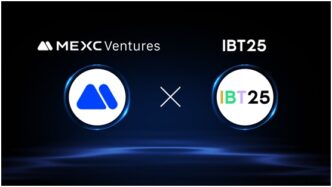Welcome to the future of technology! If you’ve been keeping an eye on the digital world, chances are you’ve heard about blockchain – a revolutionary technology with boundless possibilities. From cryptocurrencies to supply chain management, this game-changing innovation is taking industries by storm. But what exactly is blockchain, and how can it unlock a world of opportunities for businesses and individuals? In this comprehensive guide, we will delve into every aspect of blockchain technology, unravel its potential applications, and ensure that you’re equipped with all the knowledge needed to embark on your own exploration journey. where trust meets efficiency and immutability reigns supreme – welcome to the fascinating universe of blockchain
Introduction to Blockchain Technology
In recent years, Blockchain technology has gained a lot of traction as a result of the popularity of cryptocurrencies. However, blockchain technology is much more than just cryptocurrency. In its simplest form, a blockchain is a distributed database that allows for secure, transparent and tamper-proof record keeping.
The potential applications of blockchain technology are vast and far-reaching. Here are some examples:
- Supply Chain Management: Blockchain can be used to track the provenance of goods and ensure that they are sourced from ethical and sustainable suppliers.
- Identity Management: Blockchain can be used to create a digital identity that cannot be forged or stolen. This could have major implications for KYC (know your customer) processes in financial institutions.
- Data Management: Blockchain can be used to create secure and tamper-proof databases. This could have major implications for data security and privacy.
- Voting: Blockchain can be used to create secure and transparent voting systems that cannot be hacked or manipulated. This could have major implications for democratic processes around the world.
- Smart Contracts: Blockchain can be used to automate contract execution and enforcement. This could have major implications for many industries, from real estate to insurance.
Benefits of Blockchain
There are many potential benefits of blockchain technology. First and foremost, it has the potential to greatly reduce costs and increase efficiency in a wide range of industries. This is because blockchain technology can automate many processes that are currently manual or require a lot of time and effort to complete. For example, in the financial sector, blockchain could be used to streamline the process of settling trades and other transactions. This would save a tremendous amount of time and money for banks, investors, and other parties involved in these transactions.
In addition to reducing costs and increasing efficiency, blockchain also has the potential to improve security and transparency in a variety of industries. For example, in the healthcare industry, blockchain could be used to securely store and share patient health data. This would allow patients to have full control over their own data while still allowing healthcare providers access to the information they need. In the supply chain management industry, blockchain could be used to track goods as they move through the supply chain from manufacturer to retailer. This would allow all parties involved in the supply chain (including consumers) to see exactly where a product came from and how it made its way to them.
There are many potential benefits of blockchain technology that make it an exciting area of development for businesses and individuals alike.
Applications of Blockchain for Businesses
Businesses are quickly taking notice of blockchain technology and its potential to streamline processes, reduce costs, and provide a secure environment for data sharing. Here are some of the ways businesses are using blockchain technology:
Supply Chain Management: Blockchain can be used to track the movement of goods throughout the supply chain from manufacture to delivery. This tracking would be visible to all parties involved in the supply chain, providing transparency and accountability.
Payments: Blockchain-based payments are fast, secure, and can avoid the fees associated with traditional payment methods.
Data Security: Blockchain’s distributed ledger system enables businesses to securely share data while maintaining privacy. This is particularly useful for businesses that handle sensitive customer data.
Contracts: Smart contracts can automate contractually-obligated tasks and store them on the blockchain ledger. This would reduce the need for manual contract management and could help prevent fraud.
Types of Distributed Ledger Technologies (DLTs)
There are many types of distributed ledger technology (DLT), each with its own advantages and disadvantages. The following is a brief overview of the most common types of DLTs:
- Bitcoin: Bitcoin is a decentralized cryptocurrency that uses a public ledger called a blockchain to record transactions. bitcoins are “mined” by computers that solve complex algorithms. Bitcoin is the first and most well-known cryptocurrency, but it is not without its drawbacks, such as slow transaction times and high energy consumption.
- Ethereum: Ethereum is a decentralized platform that runs smart contracts: applications that run exactly as programmed without any possibility of fraud or third party interference. Ethereum’s main advantage over Bitcoin is its support for smart contracts, but it also has faster transaction times and lower fees.
- Ripple: Ripple is a centralized network that offers fast, cheap, and reliable transactions. Ripple does not use a blockchain, but instead uses a shared ledger that is maintained by a network of servers. This results in faster transaction times and lower fees, but it also means that Ripple is less decentralized than other DLTs.
- Hyperledger Fabric: Hyperledger Fabric is an open-source DLT developed by the Linux Foundation. It supports modularity and privacy, which makes it suitable for enterprise use cases. Hyperledger Fabric does not have its own cryptocurrency but can be used to create private blockchain networks.

Blockchain Security and Privacy Protocols
The blockchain is a distributed database that allows for secure, transparent and tamper-proof recordkeeping. The potential applications of blockchain technology are far-reaching and have the potential to impact many industries. In this blog article, we will explore the security and privacy protocols that are necessary to ensure the success of blockchain applications.
Security is of paramount importance when it comes to blockchain technology. The decentralized nature of the blockchain means that there is no single point of failure. This makes it incredibly difficult for hackers to corrupt the data stored on the blockchain. In addition, all transactions on the blockchain are verified andconfirmed by all participating nodes before they are recorded in the public ledger. This makes it impossible for anyone to fraudulently alter transaction data.
Privacy is also an important consideration when implementing blockchain applications. Although all transactions are publicly visible on the blockchain, users can remain anonymous if they choose to do so. In addition, smart contracts can be used to execute transactions without revealing any sensitive information about the parties involved.
By utilizing both security and privacy protocols, blockchain technology can be used to create secure and private online environments. This has huge implications for a variety of industries, including financial services, healthcare and government.
Challenges Facing Adoption of Blockchain Technology
“While the potential of blockchain technology is clear, wide-scale adoption has yet to take place. This is due to a number of challenges facing the technology, including:
- Lack of understanding: For many people, blockchain is still a new and unfamiliar concept. There is a lack of understanding about how it works and what it can be used for. This needs to be addressed before widespread adoption can occur.
- Scalability issues: Blockchain technology is currently not able to handle large volumes of transactions due to its limited scalability. This needs to be improved before the technology can be adopted on a wider scale.
- High costs: The high costs associated with developing and maintaining a blockchain infrastructure are another barrier to adoption. These costs need to be reduced before more businesses and individuals will start using the technology.
- Regulatory uncertainty: Another challenge facing blockchain technology is regulatory uncertainty. It is not yet clear how various jurisdictions will regulate the use of blockchain, which creates risk for businesses considering adoption.
- Competition from other technologies: Blockchain technology faces competition from other emerging technologies, such as distributed ledger technology (DLT). DLT offers many of the same benefits as blockchain but does not suffer from some of the same limitations, such as scalability issues. This could make DLT a more attractive option for businesses considering adoption.”
Success Stories & Case Studies
If you’re looking for a comprehensive guide on exploring the potential of blockchain technology, then look no further! In this blog article, we’ll discuss everything you need to know about this exciting new technology, including what it is, how it works, and some potential applications.
We’ll also showcase some success stories and case studies of businesses that are already using blockchain technology to improve their operations. So whether you’re a business owner who is considering integrating blockchain into your business model or you’re just curious about this cutting-edge technology, be sure to read on!
Conclusion
Blockchains are a powerful yet incredibly flexible technology. With the help of this guide, we hope you are now better informed as to how it works, and what kind of potential Blockchain technology has when it comes to application development, business operations transformation and enterprise-level solutions. Blockchain technology is still in its early stages but once organisations begin realising its full potential it could revolutionize our world like no other technological innovation before. If you’re looking for ways to optimise your own organisation’s processes then there really is no better time than right now to explore the possibilities that blockchain can offer.













